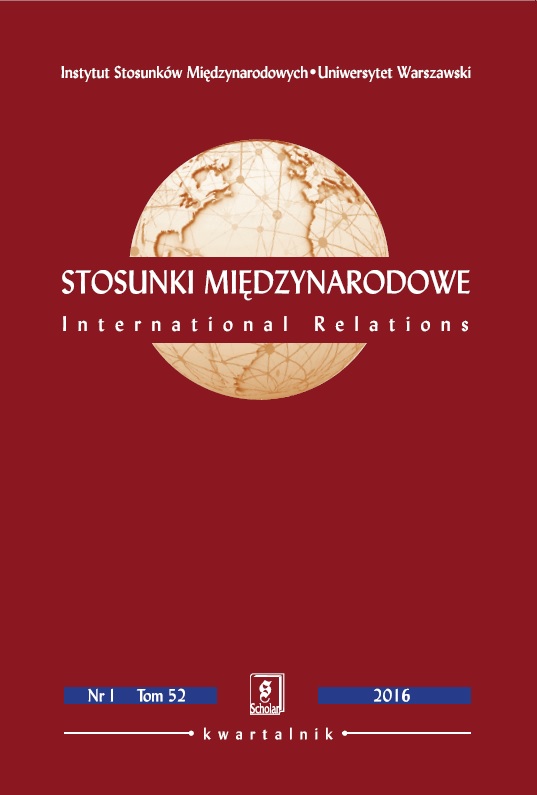Hard power a soft power w polityce zagranicznej Arabii Saudyjskiej w drugiej dekadzie XXI wieku. Casus Bahrajnu i Jemenu
HARD AND SOFT POWER IN SAUDI ARABIA’S FOREIGN POLICY IN THE SECOND HALF OF THE 21ST CENTURY. THE CASE OF BAHRAIN AND YEMEN
Author(s): Katarzyna CzornikSubject(s): Politics / Political Sciences, Politics, International relations/trade
Published by: Wydawnictwo Naukowe Scholar Sp. z o.o.
Keywords: Saudi Arabia; Bahrain; Yemen; hard power; soft power
Summary/Abstract: At the beginning of the second decade of the 21st century Saudi Arabia plays therole of regional power in the Middle East and aspires to the role of hegemon in thePersian Gulf subregion. It perceives the Islamic Republic of Iran as its most seriousrival in achieving this status. The two states do not engage in direct conflict buthave become entangled in rivalry in the form of proxy wars (the case of Bahrain in2011 and Yemen in 2015). Pursuing its interests and foreign policy goals towardsthe Middle East, Riyadh, however, uses instruments that are not always consistentwith the standards of international law. This has been especially clear in the seconddecade of the 21st century, which for the Middle East has become a decade ofescalating instability and intraregional disputes and conflicts. Given this, SaudiArabia’s use of hard power constitutes a direct reaction to threats to its state securityand interests. Consequently, soft power, which is a policy more relevant to an ageof peace, stability and relative security, lost any justification in Riyadh’s policiestowards the country’s immediate neighbourhood by becoming ineffective.
Journal: Stosunki Międzynarodowe
- Issue Year: 52/2016
- Issue No: 1
- Page Range: 189-210
- Page Count: 22
- Language: Polish

